Become a Ski Instructor on Your Career Break

If you love skiing or snowboarding, or both, you may have decided you want a career in the ski industry. But where do you begin? To help prepare you, today we’re taking a look at a day in the life of a ski instructor, plus some insight into things like pay and career pathways, to give you an idea of what you need before you pack your bags and head for the mountains.
Skiing and snowboarding for fun is one thing, but teaching others all day, every day is totally different, so as well as having a passion for skiing, you must also have the passion to share what you enjoy with others. Whilst highly qualified and experienced ski instructors can earn a good salary, a career in the ski industry is usually chosen for the lifestyle and should only be pursued by those who have a genuine love for the sport and mountain lifestyle.
What does a Career Break look like as a Ski Instructor?
Your day will depend largely on who you are coaching. There is a big difference between teaching beginners and coaching advanced skiers to become even better. Some may be responsible for just children, others teach adult groups, but many have a go at everything.
In a lot of ski schools, developing snowboard and ski instructors will be given a combination of lessons, and in your first season after achieving initial qualifications you’ll often be responsible for beginner and kids’ lessons almost exclusively.
If you’re an advanced skier and are expecting your working day to involve racing down black runs with a small group of skiers, stop right there. BUT, this will come if you prove yourself reliable, talented and gain experience
You’ll just have to make your days off like this count…
The more experienced you become, and the higher your level of qualifications, the more you will be able to pick and choose. It’s worth noting, however, that teaching beginners can be extremely rewarding. Many students who’ve taken gap year ski instructor courses and then given beginners lessons have commented on how great it feels when you see someone who had never skied before master their first turns thanks to your instruction.
Teaching children to ski can also be a lot of fun. There tends to be fewer long-winded explanations of the ski techniques they should be using, as kids won’t understand this. Kids ski lessons are more practical and involve lots of skiing, demonstrations and games.
When you have a group to teach on a ski week or longer, you really get to know each other as you have the same people each day, so you see them improve as the week progresses. I know this is something the ALLTRACKS coaches really value. They get to know you well and see your riding transform. Of course, if it’s an adult group you’re working with then there will often be a social side to enjoy with them in the evening too, when après-ski gets going!
To become a ski instructor, you do not need to be the finished product, but you must meet certain baseline requirements.
What are the Requirements to Apply to be a Ski Instructor?
Skill Level
Skiing or snowboarding for fun is quite different from teaching these sports daily. Many people are surprised to find that the entry standards for instructor training are often less demanding than they expect.
While there is a specific skill level you should achieve before starting instructor training, you don’t have to be an expert. In fact, instructors at all levels continue to learn and develop their skills throughout their careers.
Fitness
Ski instructing is a physically demanding job. You will be skiing or snowboarding every day, often for long hours, so you should be prepared to view yourself as an athlete.
High-level instructors prioritise flexibility, core strength, and overall fitness, often training both in the gym and on the snow.
Language & Personal Skills
Effective communication skills are essential for instructors. They teach individuals of all ages and abilities and must be able to motivate students, explain concepts clearly, and adapt their teaching styles to meet different needs.
A positive and enthusiastic attitude, along with the ability to collaborate well in a team, is just as important as technical expertise. Previous teaching or leadership experience can be beneficial.
What Qualifications Do I Finish With?
To work professionally as a ski or snowboard instructor, you must possess recognised qualifications.
Various instructor qualification systems exist worldwide, including:
– Canadian Ski Instructors Alliance (CSIA)
– Canadian Association of Snowboard Instructors (CASI)
– British Association of Snowsport Instructors (BASI)
– French Ski School (ESF)
At Alltracks, we concentrate on offering qualifications within the Canadian system.
Not only is Canada one of the best places in the world to ski, but as the CSIA and CASI are internationally very well-respected, it’s also a great place to train and work as a ski or snowboard instructor.
The CSIA has a certification system of four levels:
• Level 1 instructors are likely to teach beginners and children
• Level 2 allows you to teach up to intermediate parallel ski level.
• Level 3 allows you to teach those skiers of an advanced parallel level. On achieving level 3, you’re also eligible for the International Ski Instructor’s Association stamp (ISIA Stamp). The prerequisites, however, are that you have first aid and basic avalanche safety training.
• Level 4 is a senior certification. This grades you as an instructor of an expert level. It will be someone of this level who generally trains and certifies other instructors.
• The CSIA Snow Park Certification will allow you to teach freestyle and terrain park skills.
Once you get through the four instructor levels, you can also begin the examiner courses. Guy Hetherington, the ALLTRACKS head coach, is one of a handful of Level 4 Examiners in Canada.
Visas and Work Permits for Foreign Nationals in Canada
Those who are considering visiting Canada for ski and snowboard courses will need a visitor’s visa. This is usually granted when you arrive in the country, for up to six months at a time, provided you don’t intend to take on any work during your stay. It is your responsibility to ensure you have the visa necessary.
Those who are looking for a ski or snowboard instructor jobs in Canada will also need a work permit. Be aware that working visas are in high demand and often get booked well in advance. My advice is to apply as early as you can, as soon as the visas are released.
https://www.youtube.com/watch?v=ykYb2YgeDSs
The best option in nearly all cases is to apply for a working holiday permit via the International Experience Canada (IEC) programme, which typically allows you to travel and work in Canada for up to one year, or two for some nationalities.
In some countries, you can make an IEC application via an independent organisation who charge an additional fee to help you with the application process. In the UK, try BUNAC, and in Ireland check out USIT.
Many other countries have similar ways to apply and we have had people from all over the world join our courses. Some other useful resources and information about working in Canada as a foreign national are available on this page of the Canadian Government website.
Where do I train?
With Alltracks, you have the choice of training in some of the most scenic locations on the planet. Whether you are looking to ski in Canada or the European Alps, we cover it all.
The locations available are:
How much does it cost & how long does it take?
Rates of pay will vary from one ski resort or school to another for ski and snowboard instructors. How much they pay you will depend on the experience and the level of certification you have achieved. In Canada, tipping instructors is a common thing, and many ski instructors have been known to almost double their wages with the tips they receive on the slopes, especially in private lessons.
That said, at the start of your career, you can expect to earn a little more than the Canadian minimum wage of C$11 per hour (around £6). So if you have designs on being super rich, this probably isn’t the career for you. Instead, your earnings are offset by the numerous benefits of the lifestyle a career in the ski industry affords:
- Free lift pass for the season
- Skiing every day in some of the most beautiful places in the world
- Free or cheap accommodation (some resorts provide this free)
- Discounts at the resort you are working in
- Getting paid for doing something you love
When you consider these points, the pros easily outweigh the cons; at least it should for those who are serious about it and have a real passion for skiing or snowboarding.
Gap Year vs Career Break vs Long-term Career
Gap Year
Many people will take ski instructor courses as part of their gap years, combining training, development, and immersion in mountain life, pre- or post-studies.
Career Break
A career as a ski instructor is often chosen for the lifestyle. It’s appealing to those seeking to escape traditional desk work and spend time in the mountains doing something they enjoy.
This path suits individuals with a genuine passion for skiing or snowboarding, as well as an outdoor environment.
Long-Term Career
For those who want to progress in ski instructing, higher-level qualifications can open up more opportunities.
Senior instructors are expected to be role models and ambassadors for the resorts they work in, and will often move into training and examining roles, with further qualifications.
Become a Ski Instructor on your Gap Year
They say the people who love their job usually do very well at it. So if you have a real passion for skiing or snowboarding and prefer snow-topped mountains to mountains of paperwork, I hope this article has encouraged you to check out the courses we offer – full details of which are available here – and learn with the best at a fantastic ski resort.
What are the things holding you back from becoming a ski instructor? Or perhaps you’ve already started on your path towards a career in the industry? Get in touch to discuss….
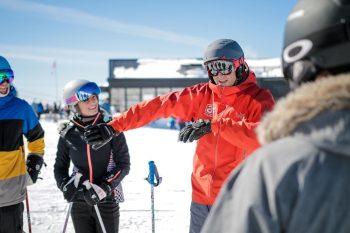
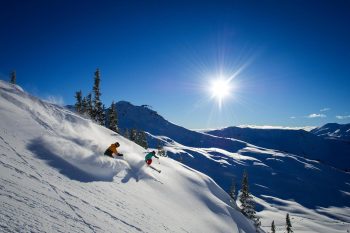
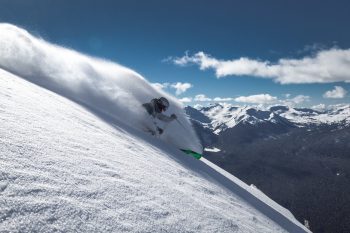
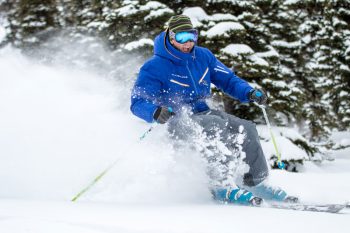

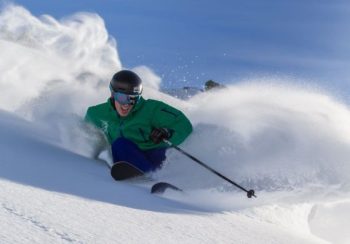
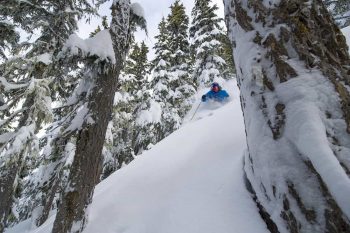
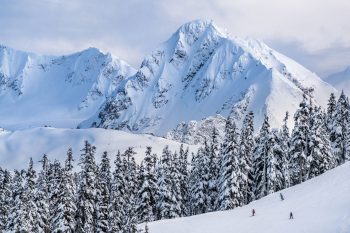
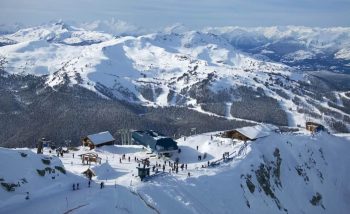
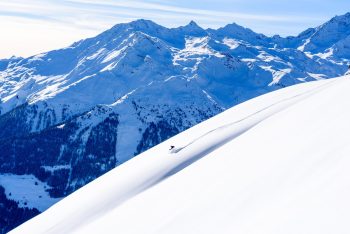
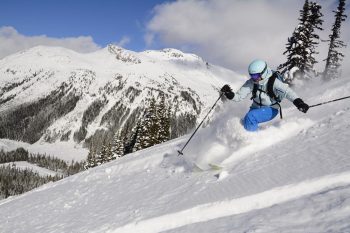
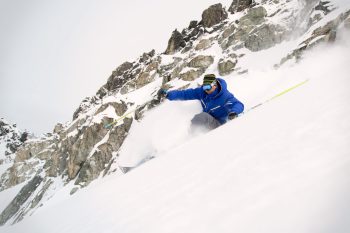
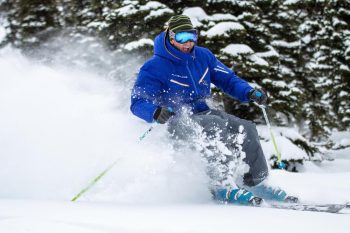
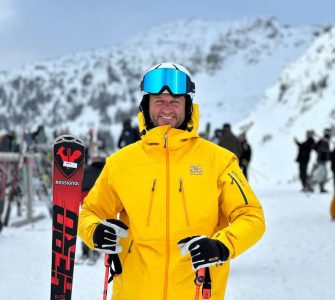
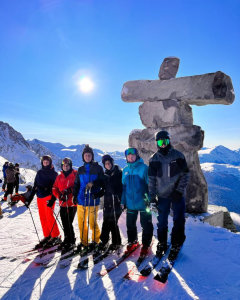

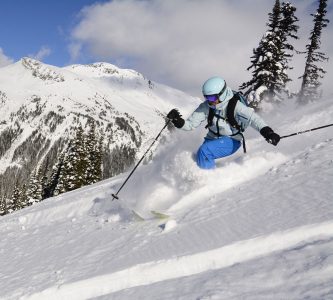
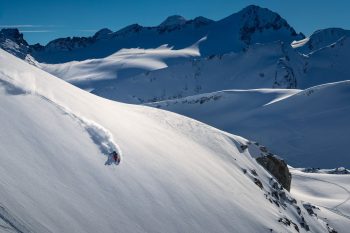
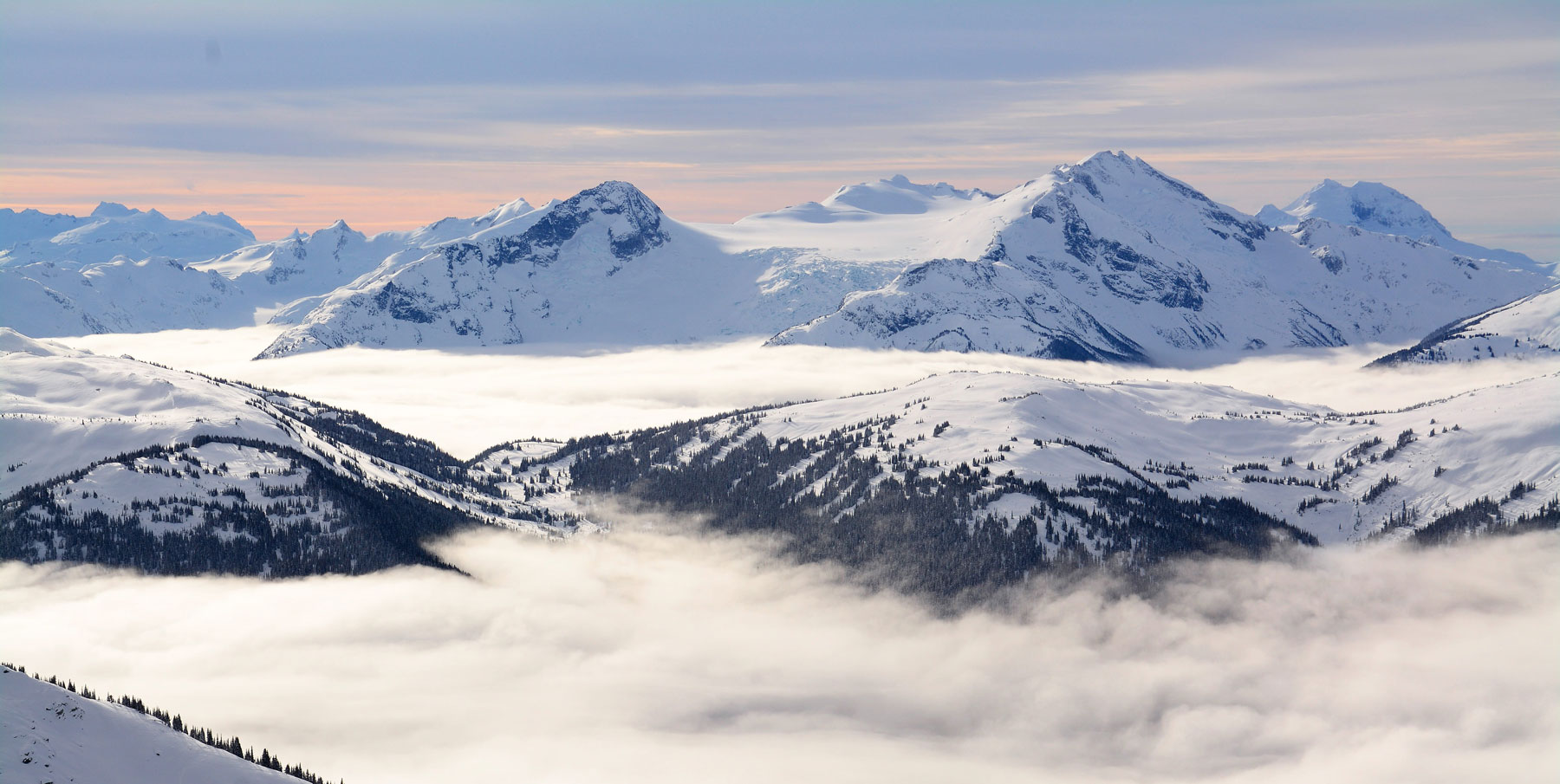
Comments
Steve Boswell says
Hi Paul,
It is a while since I contacted you regarding my son Jacob. He should graduate from Derby Uni, Buxton Campus with his BA hons degree in outdoor-activity-leadership-and-coaching. Jake has various leadership qualifications along with Life Gurad and other similar qualifications. He has already got instructor worth with PGL from May to October but is looking to put the woork in to become a ski instructor. He can ski and board but is looking for specialist instructor training and development. He is looking for potentially a work and training instructor package for 2015-16. I look forward to hearing from you on your suggestions.
Add comment
replies
Paul Beard says
HI Steve,
We would love to help get Jacob out to Whistler. Perhaps he would be interested in applying for the internship programme: https://alltracksacademy.com/ski-snowboard-instructor-internships/
I can happily give you/Jacob a call to discuss the application procedure and answer any questions that you have. You can email us your number and I'll give you a call.
All the best,
Paul
Add comment
replies
Jane Medcalf Nearly Hutchinson says
Sam Crockett
Add comment
replies
James Morgan says
Great company U0001f44d
Add comment
replies
ALLTRACKS ACADEMY says
Thanks James - hope you're well and life good.
Add comment
replies
James Morgan says
Hi Paul. Yes all good mate, nothing but good words to say about Alltracks.. Great time..
Hope everything's good your end..
Add comment
replies
Steve Boswell says
Thanks Paul,
I will arrange with Jacob, so we can call you. Thanks again Steve
Add comment
replies
Paul Beard says
No problem Steve. I look forward to hearing from you when you're ready.
Add comment
replies
Chrissie Pringle says
Katherine Forbes haha ;)
Add comment
replies
stuart says
Hi Paul
I have a son who has completed his level 9 snowline when he was 8 years old.
He is a very good skier and has started race training on a regular basis, also he helps out at our local ski centre showing the younger children how to ski.
He is now 10 years old and would like to know if there is anything else he can do to help others enjoy the sport that he loves so much.
He knows to become BASI level 1he must be 16.
Any advise would be great.
Thanks
Stuart.
Add comment
replies
Paul Beard says
HI Stuart,
Thanks for getting in touch with us. I am afraid that we do not offer any courses as such for youngsters, but we could happily arrange a bespoke training course with one of our top Level 4 ski coaches and work on what is most relevant for your son. Here is some info:
https://alltracksacademy.com/ski-snowboard-bespoke-training/
Please feel free to give us a call if you'd like to discuss further.
Add comment
replies
Comments for this post are closed.